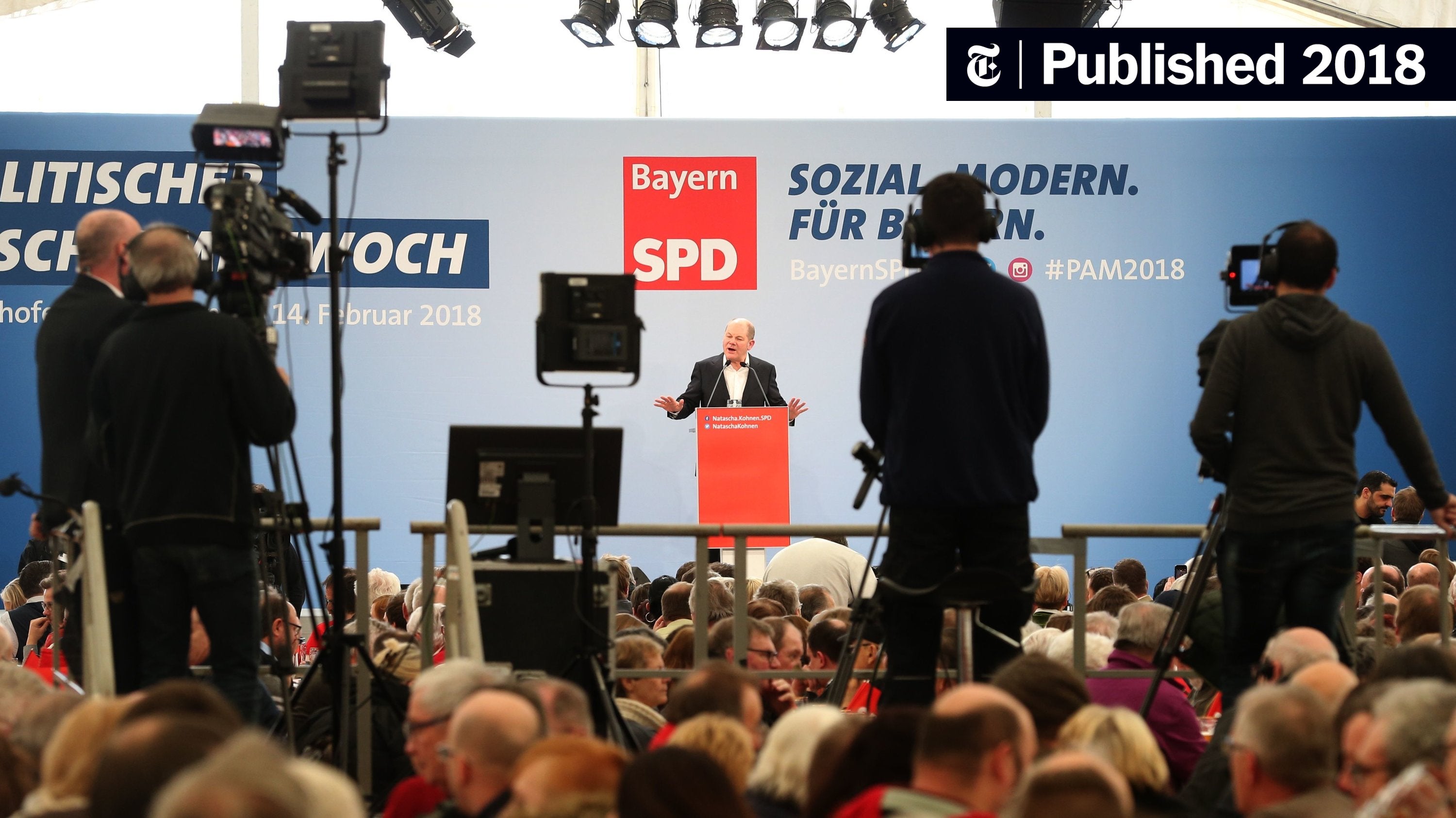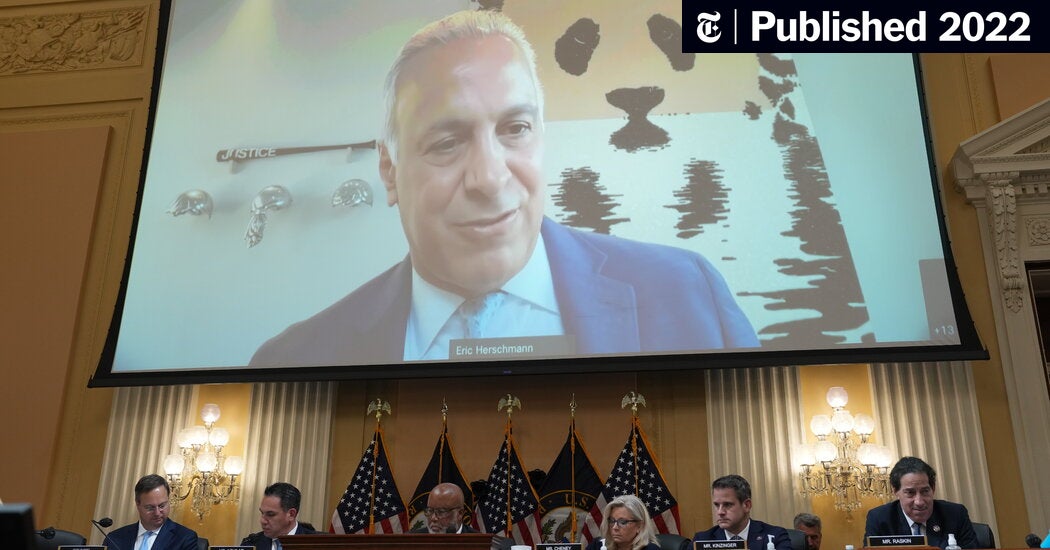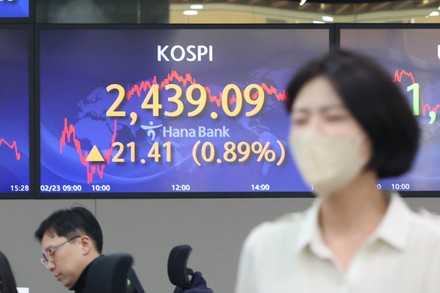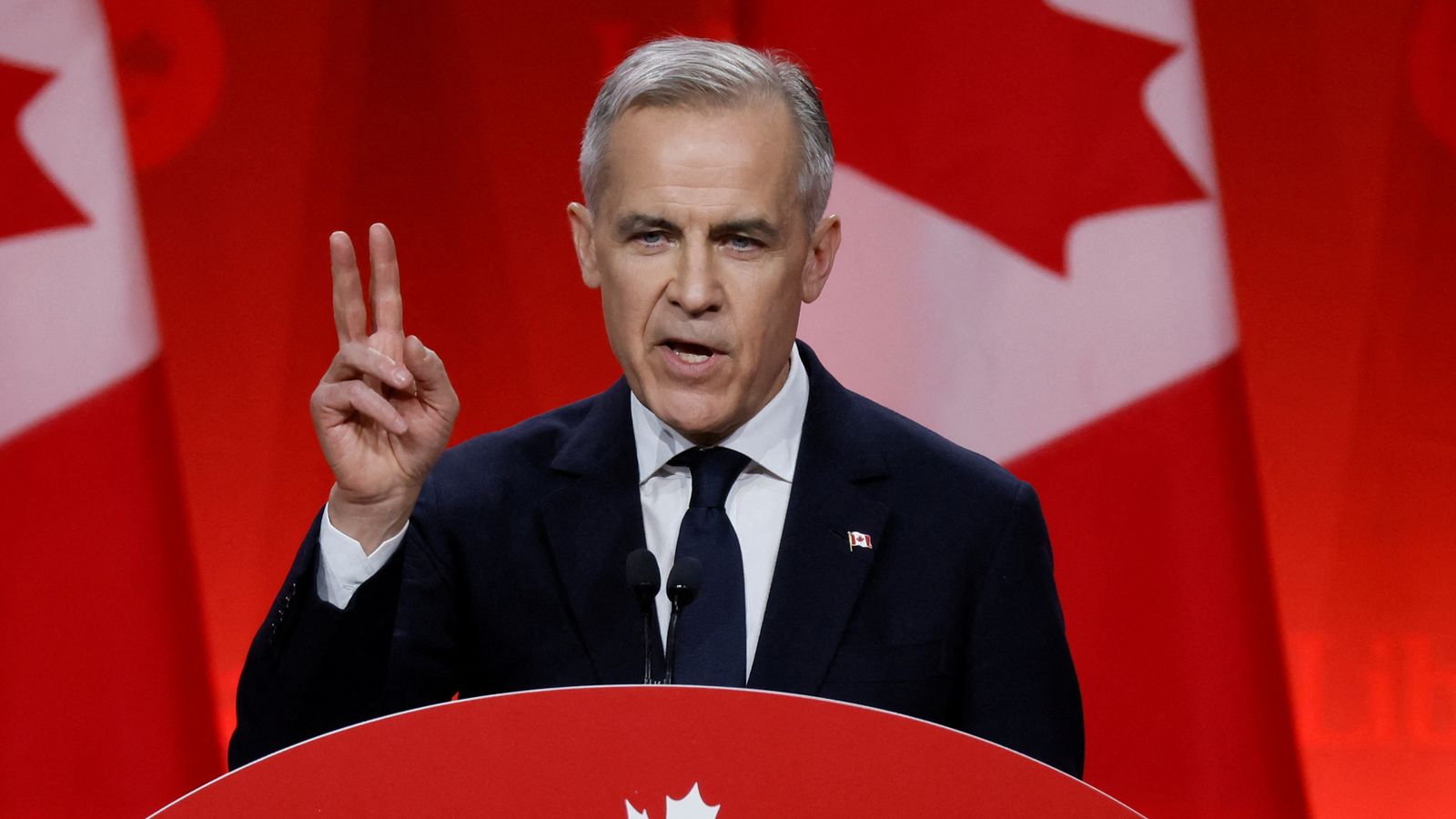How Germany's Youth Protests Impact SPD's Coalition Agreement

Table of Contents
Climate Change Policies Under Scrutiny
H3: Increased Pressure for Ambitious Climate Targets
Youth protests are demanding faster and more decisive action on climate change, significantly increasing the pressure on the SPD to strengthen its commitment to emissions reduction targets outlined in the coalition agreement. This pressure translates into concrete demands impacting policy.
- Specific examples of youth demands: These include a faster phase-out of coal power plants, significantly increased investment in renewable energy sources like solar and wind power, and stricter regulations on carbon emissions from industry and transportation. The youth are vocal about the inadequacy of current targets compared to the urgency of the climate crisis.
- Analysis of how these demands contradict or align with the current coalition agreement: While the coalition agreement includes commitments to climate action, the youth movements argue these are insufficient to meet the Paris Agreement targets and the scale of the climate emergency. The demands often push for more aggressive timelines and greater financial investment than initially planned.
- Potential policy changes driven by protest pressure: The pressure from these protests is already leading to internal debates within the SPD and the coalition government. We may see revisions to the coalition agreement, including more ambitious emissions reduction targets, faster coal phase-out schedules, and increased funding for renewable energy projects.
H3: Funding for Green Initiatives
Protests are also highlighting the critical need for significantly increased funding for green technologies and sustainable infrastructure, a key area where the coalition agreement might be renegotiated due to the pressure from youth activists.
- Discussion of budgetary constraints and potential compromises: The German government faces budgetary constraints, and allocating substantial additional funds for green initiatives requires difficult choices and potential compromises in other areas of government spending. Balancing these competing demands is a central challenge for the SPD.
- Analysis of the SPD's response to funding demands from youth activists: The SPD’s response has been a mixture of acknowledging the urgency and highlighting the financial complexities. They are attempting to balance ambitious green goals with fiscal responsibility, a difficult task made more challenging by the youth protests' unwavering pressure for immediate and substantial action.
- Examples of specific projects impacted by funding decisions: Decisions on funding will directly impact projects related to renewable energy infrastructure, public transportation upgrades, energy efficiency retrofits for buildings, and research and development in green technologies. The scale of these projects will be directly influenced by the level of funding secured, reflecting the impact of Germany's youth protests.
Social Justice and Economic Inequality
H3: Youth Concerns about Affordability and Social Mobility
Youth protests frequently raise concerns about rising living costs, crippling student debt, and a significant lack of affordable housing. These issues directly challenge the SPD's stated commitment to social justice and economic equality.
- Examples of specific policies in the coalition agreement addressing these concerns: The coalition agreement includes policies aimed at improving access to affordable housing, expanding student financial aid, and raising the minimum wage. However, the youth argue these are insufficient to address the scale of the problems.
- Analysis of the effectiveness of these policies in light of youth protests: Youth activists argue that current policies are inadequate and fail to address the root causes of affordability issues and limited social mobility. This criticism is forcing a re-evaluation of existing policies and their effectiveness.
- Potential future policy adjustments influenced by youth activism: In response to the protests, the SPD may need to consider more radical policy adjustments, such as expanding rent control measures, significantly increasing student grants, and implementing further measures to address income inequality.
H3: The Role of Education and Job Market Reforms
Protests also call for better educational opportunities and comprehensive job market reforms to address concerns about future prospects. These demands directly challenge the SPD’s economic policies.
- Specific demands related to vocational training, higher education funding, and addressing youth unemployment: Youth activists demand increased funding for vocational training programs, more affordable higher education, and policies to create more jobs and address youth unemployment.
- How these demands interact with the SPD's economic policies: The SPD's economic policies need to reconcile with these demands to create a balance between economic growth and social justice. The youth's pressure for significant investment in education and job creation presents a direct challenge to budgetary priorities.
- Potential changes in the coalition agreement reflecting youth concerns: The SPD may need to revise its economic policies to include more substantial investments in education and training, active labor market policies to combat youth unemployment, and measures to improve the affordability of higher education.
Political Participation and Influence
H3: Shifting Political Landscape and Voter Behavior
Germany's youth protests are reshaping the political landscape and significantly influencing voter behavior, particularly amongst younger demographics.
- Discussion of the impact on election results and public opinion polls: The protests have demonstrably influenced election results and public opinion polls, with a growing number of young people expressing support for parties that prioritize climate action and social justice.
- Analysis of how the SPD is adapting its communication strategy to address youth concerns: The SPD is adapting its communication strategy to better engage with young voters, acknowledging their concerns and highlighting the party’s commitment to addressing climate change and social justice.
- The long-term consequences of this shift in political engagement: The increased political engagement of young people represents a significant long-term shift, influencing the political agenda for years to come. The SPD needs to engage proactively to maintain its support among this crucial demographic.
H3: Increased Demands for Transparency and Accountability
Youth activists are demanding greater transparency and accountability from politicians, a key factor driving political change.
- Specific examples of demands for improved communication and engagement with youth: These demands include improved communication channels, more opportunities for direct engagement with policymakers, and greater openness and honesty in political discourse.
- How the SPD is responding to these calls for greater transparency: The SPD is responding by adopting more transparent communication strategies and seeking more direct engagement with youth groups to understand their concerns and build trust.
- The long-term implications for political trust and participation: Meeting these demands for transparency and accountability will be crucial in rebuilding trust in political institutions and encouraging continued youth participation in the democratic process.
Conclusion
Germany's youth protests are significantly impacting the SPD's coalition agreement, forcing a reassessment of climate policies, social justice initiatives, and political engagement strategies. The pressure from these demonstrations is pushing for bolder and faster action on pressing issues. The SPD must carefully consider the demands of young protestors to maintain public support and secure its political future. Ignoring the concerns highlighted by Germany's youth protests risks alienating a crucial demographic and undermining the long-term viability of the coalition agreement. Understanding the impact of these protests is critical for navigating the future of German politics. The SPD needs to actively respond to these demands and incorporate the concerns of young people into its policy-making to ensure the long-term success of its coalition and its political standing in Germany.

Featured Posts
-
 Understanding The Gangs Of London Fact Vs Fiction In The Sky Series
Apr 30, 2025
Understanding The Gangs Of London Fact Vs Fiction In The Sky Series
Apr 30, 2025 -
 Fourth Law Firm Agrees To Pro Bono Trump Work To Protect Government Clients
Apr 30, 2025
Fourth Law Firm Agrees To Pro Bono Trump Work To Protect Government Clients
Apr 30, 2025 -
 Doubt Cast On Vitals Inquiry Report Following Expert Witness Testimony
Apr 30, 2025
Doubt Cast On Vitals Inquiry Report Following Expert Witness Testimony
Apr 30, 2025 -
 Retailers Warn Temporary Reprieve From Tariff Price Hikes
Apr 30, 2025
Retailers Warn Temporary Reprieve From Tariff Price Hikes
Apr 30, 2025 -
 Post Election Canada How Mark Carneys Liberals Will Manage Trumps America
Apr 30, 2025
Post Election Canada How Mark Carneys Liberals Will Manage Trumps America
Apr 30, 2025
